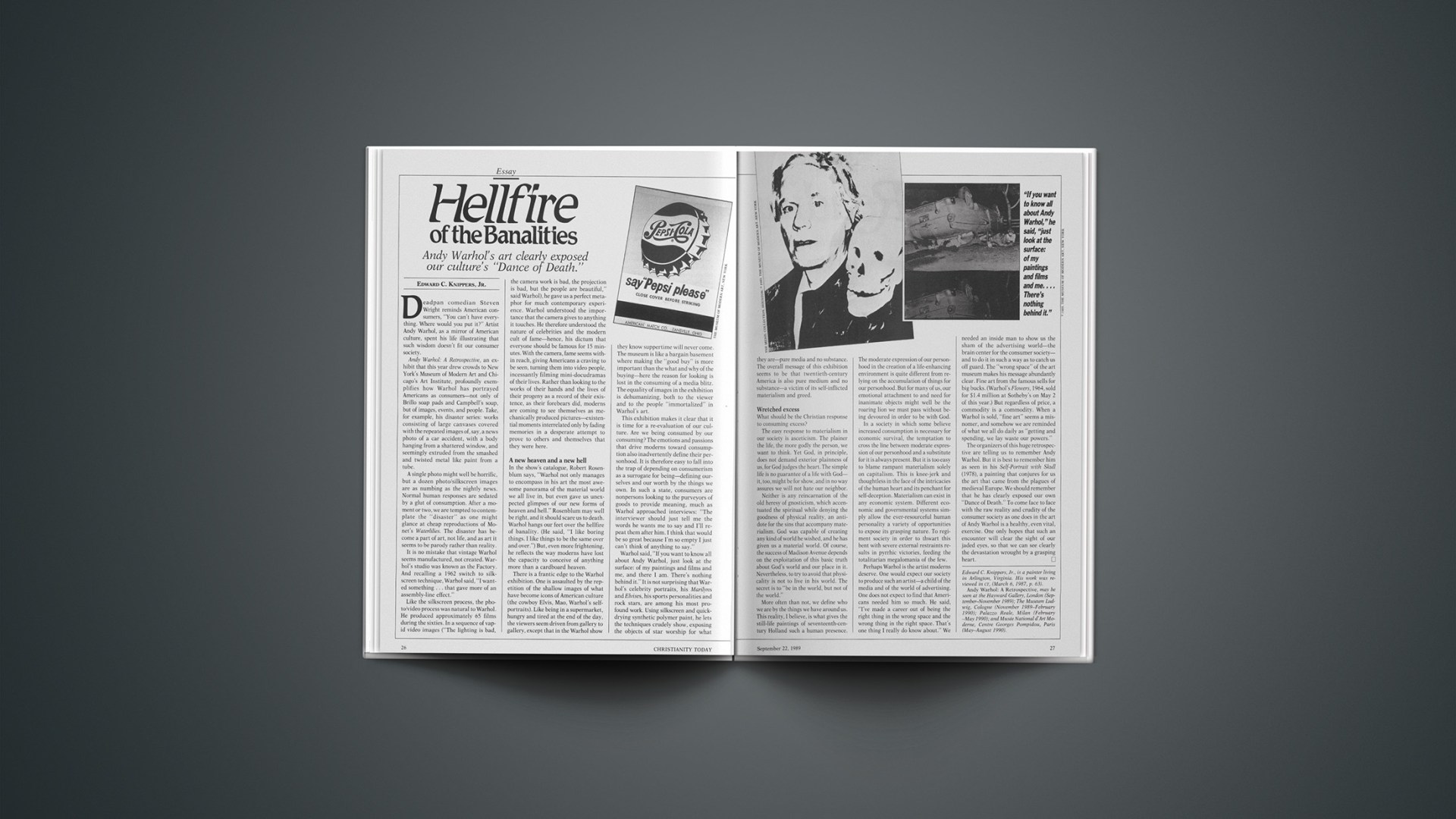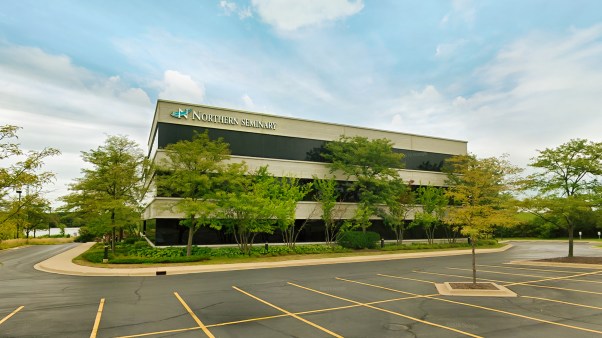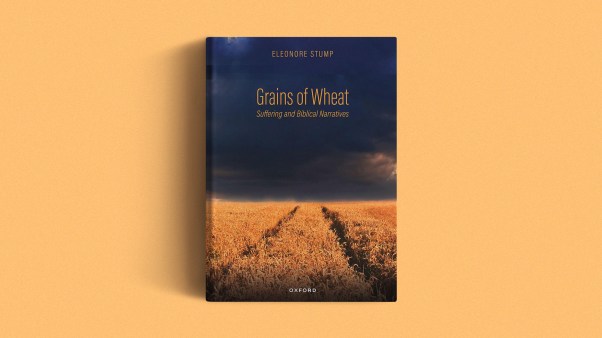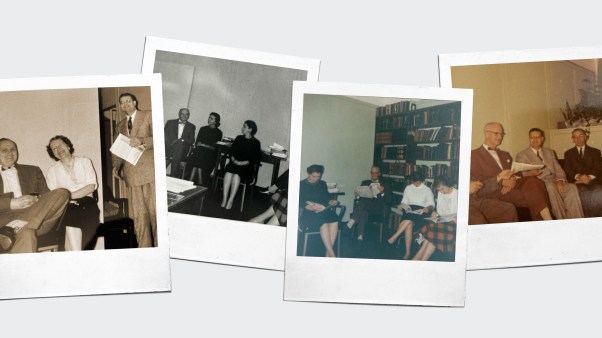Memory can catalyze, renew, and lead to a present filled with the vitality of an earlier time.
TIMOTHY K. JONES
Let us not lose the savor of past mercies and past pleasures; but like the voice of a bird singing in the rain, let grateful memory survive in the hour of darkness.
—Robert Louis Stevenson
In The Man Who Mistook His Wife for a Hat, neurologist Oliver Sacks recounts the history of a man whose memory had been obliterated by Korsakov’s syndrome.
When Sacks would visit Mr. Thompson in the hospital, he writes, the man “would identify me—misidentify, pseudo-identify me—as a dozen different people in the course of five minutes. He would whirl, fluently, from one guess, one hypothesis, one belief, to the next.… He remembered nothing for more than a few seconds. He was continually disoriented.” Thompson built bridges across the “abysses of amnesia” that opened continually beneath him, Sacks recalls, by fluent confabulations and fictions of all kinds, one moment speaking as the delicatessen-grocer he had once been, the next as an imaginary Reverend, continually improvising a world around him—“a phantasmagoria, a dream, of ever-changing people, figures, situations.”
The destruction of Mr. Thompson’s memory drove him to this strange, desperate tale telling—to a “narrational frenzy,” because, as Sacks theorizes, “to be ourselves we must have ourselves—possess, if need be re-possess, our life-stories.… A man needs such a narrative, a continuous inner narrative, to maintain his identity, his self.” Deprived of such continuity with the past, our lives would feel as random and topsy-turvy as the madly inventive Mr. Thompson’s.
Perhaps because I battle the temptation to let the past slip into oblivion as much as anyone, I have lately become aware of our society’s fixation on momentary experience, on the present moment, on whatever is current. Our lifestyle, with its mobility, pace, and noise, leaves little room for recalling the past. The constant bombardment by video motion, bone-shaking music, and media verbiage demolishes the quiet we need in order to discover and know who we are in light of where we have been.
The Recovery Of Memory
Yet around us, here or there, are pockets of longing and awareness that show that we have not altogether forgotten what it means to remember.
Filmmakers know this, and continue to produce movies that satisfy our wistful longing for the imagined innocence of an earlier era. Movies like Back to the Future, Trip to Bountiful, and Field of Dreams capitalize on this desire to look back and re-experience the past.
Or there is the “reminiscence group,” a recent phenomenon in group therapy for the elderly. Encouraging elderly people to gather and share their memories has a healing and therapeutic effect; something profoundly satisfying takes place in older people who are careful not to lose sight of the turns, twists, and detours that have brought them to the present. Similarly, some community colleges offer classes in writing autobiography, aimed mainly at retirees, who, though not famous or exceptional, want to pass along their stories to their children and their children’s children.
Or witness the phenomenon of the millions of blank books sold in this country. Many are used for collecting recipes or recording preadolescent romantic fantasies, but I suspect most are turned into diaries or journals because of our compulsion to remember, because we want to draw more deeply from the wayside epiphanies that intersect our daily lives.
That is how it was for me. Walking down the aisles of a college bookstore some years ago, I came across a display of blank books. Their embossed bindings and unlined pages were inviting. My wife off-handedly suggested that keeping a journal would be a good discipline for me as a young man and fledgling pastor. I bought one, thinking only to experiment. Soon, however, I was writing a page or two every few days, recording things I was noticing or wanted to remember. I wrote about parishioners visited, about nights awake with our newborn son, about questions that perplexed, and certainly about prayers prayed.
Keeping a journal, I discovered, was a way to relish the events of my life, and reflect on them. The writing itself sometimes reinforced the memory, the act of setting an experience down on paper bringing back details that would have slipped through the cracks of memory. And going back every few months to read previous entries allowed me not only to be aware of my past, but to learn from it. “Diary-writing,” Thomas Mallon wrote in A Book of One’s Own, “is the poor-man’s art.… The private fingering of ordinary experience can fill up notebooks as interestingly as musings on great events.” Writing—and later reading what I had written—became an interesting, and disciplined, way of remembering.
The persistence of family gatherings as a social institution is another evidence of our desire to keep memory alive, for families are libraries of remembrance, places to recall, or even discover, who we are. We tell stories to grandchildren, or take a walk with someone we love to think back over shared experiences. Year after year cousins, aunts and uncles, grandparents and grandchildren gather for family reunions. Stories abound about growing-up years, and the setbacks and joys that have made family members who they are.
Wherever we find people engaged in remembering, we find people on a journey of self-discovery. “The story of our nation or of our family becomes our identification—our means of knowing who we are,” writes seminary professor Elizabeth Achtemeier in Creative Preaching.
A friend’s experience illustrates the importance of uncovering the past for discovering who we are. Rummaging around in a box full of mementos, he happened on a report card from his father’s college days. “I was appalled to discover it full of C’s and D’s,” he said. “But after I asked him about it, I understood why it had been so important to me, and to him, that I was a straight-A student. I also understood why he had never pushed me to succeed. He told how he had worked his way through college, milking cows early every morning, driving a taxi at night, just to be able to afford to stay in school. ‘I did not have time to study,’ he told me, ‘but you—take time to study, and never waste the gift of time you have.’ ”
A Covenant Of Memory
If remembering is valuable when we use family stories to learn who we are and what we are becoming, it is vital when it comes to the shaping experiences of our faith. That is why, I believe, the Scriptures so often speak of calling to mind the things God has revealed or done or promised. “I will remember the deeds of the Lord,” said the psalmist, “yes, I will remember your miracles of long ago” (77:11). Time after time in Scripture, the people are enjoined to remember and recall. “Watch yourselves closely,” Moses told the Israelites near the end of his life, “so that you do not forget the things your eyes have seen or let them slip from your heart as long as you live” (Deut. 4:9). Biblical remembering was far more than a private, pietistic mulling over personal blessings; it involved corporate acts of worship that kept alive the stories of the God who involved himself in daily history and communal life. The people were to remember that God led them to freedom, gave them the covenants, gave them commandments and instruction, and gave them life.
Remembering was therefore more than just an option for the sentimentally inclined. There is in Scripture an ethical imperative to remember, a summons not to fall victim to a faithless forgetfulness that ultimately leads us to forget God himself.
Nowhere is this more evident than in the Old Testament prescriptions for the Passover celebration. Anyone who has attended a modern-day Passover Seder knows that the elements of this meal are far from mere ritual. The people of Israel were to celebrate the Passover in the same month “God brought [them] out of Israel by night,” as they were told in Deuteronomy 16:1. Every detail of this sacred celebration was designed to help the people remember: bitter herbs, indigenous to Egypt, so they would not forget the bitterness of their servitude there (Exod. 12:8; 1:14); unleavened bread, because they “left Egypt in haste so that all the days of [their] life [they] may remember the time of [their] departure from Egypt” (Deut. 16:3), and the debt they owed to their liberating God. The Passover was therefore to be a “lasting ordinance,” remembered for generations in the liturgies of a people. Even in the Ten Commandments, and especially in the observance of Sabbath, concern for covenantal memory stands out starkly: Not only was Israel to observe the Sabbath day by resting, they were to remember. “Remember that you were slaves in Egypt,” the Lord told the people through Moses, “and that the LORD brought you out of there with a mighty hand and an outstretched arm. Therefore the LORD your God has commanded you to observe the Sabbath day” (Deut. 5:12, 15).
Remembering, for Israel, therefore, was more than simply looking back on past events; it was bringing them into the present through celebration, through solemn remembrance, through speaking and teaching and telling. Remembrance meant participation. An event such as the Exodus, writes Walter Brueggemann in Israel’s Praise, was not simply an old memory, but “news from there told here, news from then announced now.… The repeated narrative account pushes powerfully into the present.”
It was likewise with Jesus’ followers in the New Testament: To remember and pass on the stories of what God did in Jesus, and did through Jesus in others, was more than reciting historical facts that had cooled to room temperature; it was a way to relive and make real what his followers knew should never be forgotten. “Remember the words I have spoken to you,” Jesus told his disciples in John 15:20. But he went even further in his concern for remembering: He said, “Do this in remembrance of me” (Luke 22:19). A. G. Herbert writes of this moment: “It was to be a ‘concrete remembering,’ a bringing back out of the past into the present—of what? Not of sins, for by his Sacrifice they are taken away. But of the Sacrifice itself, or rather of him, crucified, risen from the dead, victorious through death.… The Sacrifice offered once for all and unrepeatable, would be continually renewed and become newly present” (A Theological Word Book of the Bible, Alan Richardson, ed.).
The Bible’s interest in this corporate, spiritual character of remembrance is demonstrated in the story of another patient of Oliver Sacks, afflicted, like Mr. Thompson, with Korsakov’s. “Jimmie,” Sacks tells us, could not remember anything that happened to him from 1945 on. Even things he experienced moments before would perpetually, irreversibly, vanish from memory. “None of us,” Sacks writes, “had ever encountered, even imagined, such a power of amnesia, the possibility of a pit into which everything, every experience, every event, would fathomlessly drop, a bottomless memory-hole that would engulf the world.” Sacks even began to ask if Jimmie had been “de-souled” by the disease, condemned always to a “meaningless fluttering on the surface of life.” The Sisters at the Home for the Aged where Jimmie stayed told Sacks to watch Jimmie at worship at their chapel for his answer. “I did,” Sacks recalls, “and I was moved.… Fully, intensely, quietly, in the quietude of absolute concentration and attention, he entered and partook of the Holy Communion. He was wholly held, absorbed, by a feeling. There was no forgetting, no Korsakov’s then, nor did it seem possible or imaginable that either should be; for he was no longer at the mercy of a faulty and fallible mechanism—that of meaningless sequences and memory traces—but was absorbed in an act, an act of his whole being, which carried feeling and meaning in an organic continuity and unity.… Clearly Jimmie found himself, found continuity and reality, in the absoluteness of spiritual attention and act.”
Memory Through Time
But faith has to do with more than the Exodus or Jesus’ death, as central as such events are. Memory, as history often shows, can catalyze and renew, and lead to a present filled with the vitality of an earlier time. Many are the spiritual movements that owe their emergence and immediacy to an appropriation of the past: The Franciscan movement, the Protestant Reformation, the radical reform of the Anabaptists, or the emergence of modern Pentecostalism, to name a few. These all represent in some sense a remembering, a reappropriating of a message or an experience from the past that spoke in a new way to the present, and can speak again today.
The spirituals of antebellum American black worship provide a supreme example. As slaves, blacks experienced an intense identification with the ancient Israelites, both in their bondage and in their reception of God’s promise of freedom. They sang songs rich with the imagery of biblical remembrance. So they sang of Moses, in a way sang to him as though he were present, telling him to tell Pharoah, “Let my people go.” “Were you there when they crucified my Lord?” was the plaintive refrain of another spiritual. Often historical memory flamed into a vivid hope in the present, as shown in this stanza from another spiritual:
He delivered Daniel from the lion’s den, Jonah from the belly of the whale, and the Hebrew children from the fiery furnace, and why not a-everyman?
“Why not a-everyman?” is not the language of mild interest in what has gone before. It is the cry of a soul longing to be part of what God has done in the past. It is a way of learning and living out of the past dealings of God with his people in a way that creates openness for what he is doing today.
The map of God’s activity, then, is not a blank ocean between the apostolic shores and our modern day. So we need to remember—and search for our roots in—the luminaries, risk takers, and movements of the church through the centuries. To neglect them is not only to risk repeating past errors, it is to fall victim to a narrowing amnesia that leaves us floundering, like a Mr. Thompson or a Jimmie.
Remembering The Mundane
There is more to memory than remembering God’s deeds recorded in the stories of Scripture or the pages of Christian history: We must also pay attention to, and learn from, the mundane, daily ways in which God has acted in our lives. We do not need a life full of daring escapades in order to have experiences worth recalling. God speaks not only in the history-shaping, life-shaking “big” events, but also in the everyday moments. The Christian view of life sees God’s involvement in the nitty-gritty of life and history. Philologist and philosopher Erich Auerbach saw the significance of the Christian faith as “the birth of a spiritual movement in the depths of the common people, from within the everyday occurrences of contemporary life” (Mimesis). Contrasting the Christian movement with the original Roman conquest, he continues, “The agents of Christianity do not simply organize an administration from above, leaving everything else to its natural development; they are duty bound to take an interest in the specific detail of everyday incidents; Christianization is directly concerned with and concerns the individual person and the individual event.” This concern with “the individual person and the individual event” has much to say about the importance of our own remembering. We will learn much from what has already happened, what God has already taught us, if we simply call it to mind.
When my family made a move several years ago to a new community and a new church hundreds of miles away, little was settled in terms of jobs, finances, or housing. But my wife and I, supported by the counsel of wise friends, had a clear sense that we should move. During our preparations for moving, I would sometimes read through pages of my journals from previous years just to be reminded—to remember—that God had been faithful before when we took consecrated risks. It helped me more aggressively to believe that God could be trusted for the present. God’s subsequent faithfulness has become a part of our family’s own sense of history, our own understanding of God’s ability to provide. We still talk about that experience and how we want never to forget.
The importance of reading our lives backwards, of linking present action with past experience, is stated boldly by French theologian Jacques Ellul. We never fully encounter God in the moment when that encounter takes place, he argues. “It’s always afterward that we can say, with astonishment: ‘So that strange situation, that impression, that unexplainable event was God.’ And such statements are never gratuitous, because God acts … in coherence and continuity. It is by understanding his past actions that we can grasp what he is doing in the present” (Living Faith).
This concern not to lose track of the everyday “inbreakings” of God in our lives explains in part the importance of a common practice of fellowship groups. Members are often not only asked to share their “requests for prayer”—the healing of a loved one, the conversion of a neighbor, the finding of a job for someone out of work—they are also encouraged to report on answered prayers. Such calling to mind and articulating to others of the raw material of our daily life before God is more than reassuring. It helps us discern God at work in our lives.
When Memory Looks Ahead
Because God is present in so much that has happened to us, memory not only helps us to live in the present, it can point us forward and give us hope. Recalling our pasts need not box us in, or condemn us to old patterns, but can suggest instead fresh meanings for the future. Hope, as someone has said, is our memory of the future.
Remembering is inextricably tied to expectation. As Ellul writes: “[The Bible] tells us to remember the great deeds of your God, remember your deliverance from the land of Egypt, and from that learn what the future will be, for your God is the same, he is faithful, he is the one who will make that future. The future is not a matter of chance. Amidst all the random strokes of fate you can see the traces, like a crimson line, of the will of the same God who has shown both his creative power and his fidelity in your past.”
What Ellul understands theologically, novelist Frederick Buechner sums up personally. In his autobiographical The Sacred Journey, he explains his interest in his early life:
“My interest in the past, is not, I think, primarily nostalgic. Like everybody else, I rejoice in much of it and marvel at those moments when, less by effort than by grace, it comes to life again with extraordinary power and immediacy—vanished faces and voices, the feeling of what it was like to fall in love for the first time, of running as a child through the firefly dusk of summer.… But … what quickens my pulse now is the stretch ahead rather than the one behind, and it is mainly for some clue to where I am going that I search through where I have been, for some hint as to who I am becoming or failing to become that I delve into what used to be.”
A remembered face, a long-forgotten Scripture verse that suddenly comes to mind, a memory of an unexpected letter received from a grateful friend, all can connect us to the present and allow us to believe and move into our futures with a sense of grace and hope we could otherwise never muster.










